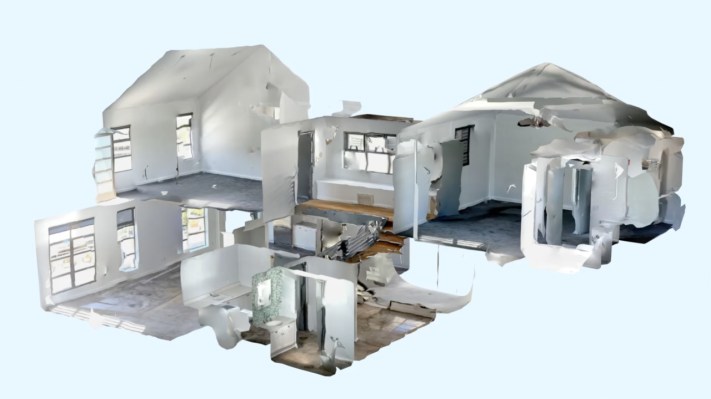Polycam, an app that uses a smartphone’s sensors to capture 3D scans of objects, is raising cash from prominent investors, including Adobe and YouTube co-founder Chad Hurley.
Polycam today announced that it closed an $18 million Series A round led by Left Lane Capital with participation from Adobe Ventures, Hurley and others. Chris Heinrich, Polycam’s co-founder and CEO, says that the capital will support new 3D editing and collaboration features, training AI models for rendering 3D objects and new market expansion.
Polycam was founded in early 2021 by Heinrich and Elliott Spelman, who’d met while working together at Ubiquity6, a startup developing mobile 3D scanning and AR tech. Both Heinrich and Spelman believed that 3D capture, enabled by hardware like the lidar sensor on more recent iPhones, could unlock 3D content creation for the masses.
“One of the challenges and opportunities of the 3D modeling space is that the core technology for 3D capture is far from perfect, and it’s not nearly as easy as snapping a photo with an iPhone,” Heinrich told TechCrunch in an email interview. “The good news is that advances in AI-driven 3D capture, when paired with the type of data that Polycam has in droves, are set to dramatically improve quality and ease-of-use over the next few years, which will unlock more use cases and increase adoption.”
Polycam offers a suite of 3D capture and modeling tools, each designed to address a different use case.

Image Credits: Polycam
On iPhones with a lidar sensor, Polycam can scan a user’s surroundings, like the rooms in their home, in 3D. The app’s “Photo Mode,” available on mobile devices and the web, employs photogrammetry — capturing images and stitching them together — to create 3D models of objects. Polycam can capture “photo spheres” and 360-degree skybox images from smartphone cameras. And — for users looking to incorporate models into a project (a video game, say) without having to capture them — the app hosts a library of free 3D models shared from the Polycam community.
Polycam earns money by charging a $100-per-year subscription for advanced features aimed at pro users.
Now, there are a number of apps on the market for smartphone-based 3D object capture. (See Luma, for one.) But it’s true that Polycam’s benefited from market consolidation in the last few years, with Niantic snatching up Scaniverse, Discord acquiring Ubiquity6 and Snap buying Th3rd.
Today, Polycam has nearly 100,000 paying customers, Heinrich tells me, and its iPhone and Android apps have been downloaded over 10 million times.
“Polycam was cash flow positive for numerous months in 2023 and has strong revenue growth,” he added. “We’ve not been noticeably affected by the slowdown in tech, achieving strong revenue growth despite the difficult macro economic environment.”
So why raise outside capital? To “expand more aggressively,” Heinrich said — including through new AI-powered capabilities, launching enterprise subscription tiers and doubling its 22-person workforce by 2025.

Image Credits: Polycam
To that end, Polycam’s expanding to the Vision Pro, Apple’s AR headset, which will become a key area of the company’s focus in the next few months, Heinrich says. Polycam’s also training AI models to fill in gaps missed in the 3D object scanning process — an investment that’ll increase the overall fidelity of Polycam’s scans, according to Heinrich.
“Even the best scans suffer from bad and incomplete data — for example an inability to scan the underside of a sofa or car,” he said. “This is where AI comes in.”
